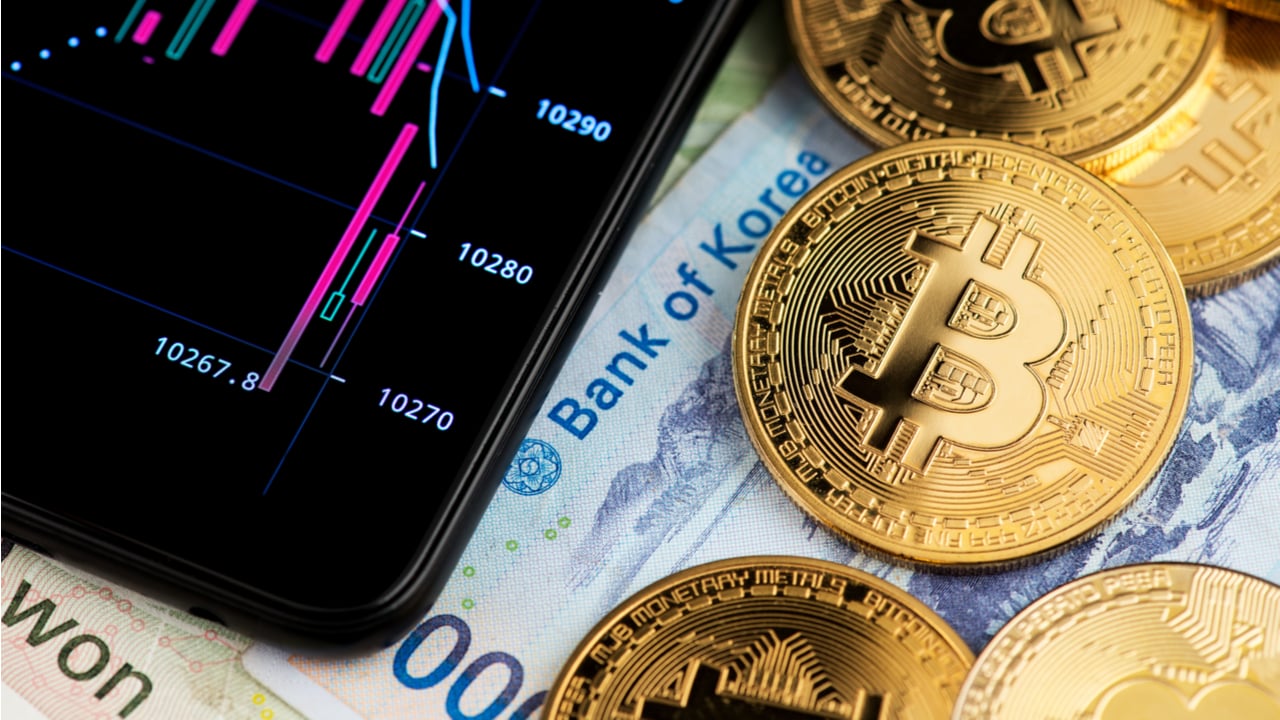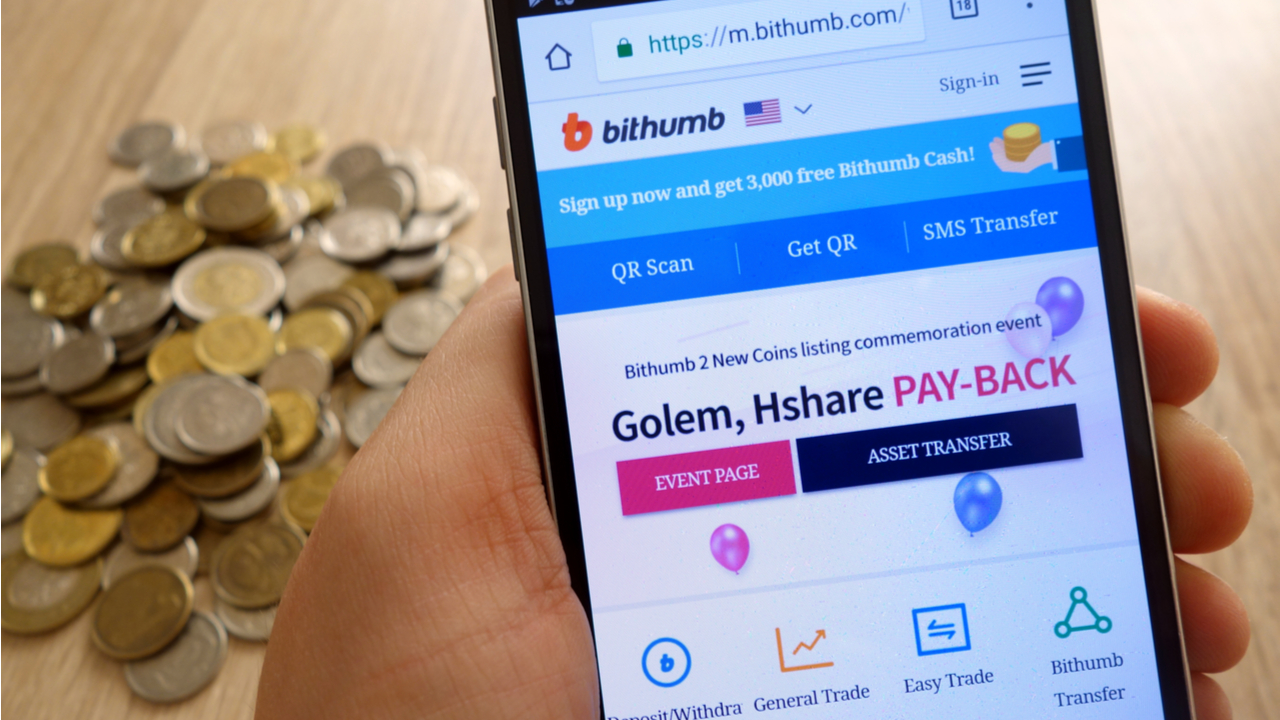 The Digital Asset Exchange Joint Consultative Body (DAXA), the South Korean association of crypto exchanges, announced on Nov. 24 that the WEMIX token would be delisted. In justifying the decision to delist WEMIX, the association claimed the information provided by the token’s issuer Wemade is false and has confused investors. Discrepancy Between WEMIX Circulating Supply […]
The Digital Asset Exchange Joint Consultative Body (DAXA), the South Korean association of crypto exchanges, announced on Nov. 24 that the WEMIX token would be delisted. In justifying the decision to delist WEMIX, the association claimed the information provided by the token’s issuer Wemade is false and has confused investors. Discrepancy Between WEMIX Circulating Supply […]
DAXA claimed that the circulating number of WEMIX exceeds what has been disclosed by Wemix, much to the chagrin of the issuers.
South Korea’s largest crypto exchanges have announced they will delist WEMIX (WEMIX) — the native token of gaming company Wemade’s blockchain platform Wemix — alleging the firm provided “false information” in response to an investment warning it was issued.
Bithumb, Upbeat, Coinone, Korbit and Gopax — which are part of a collective called the Digital Asset eXchange Alliance (DAXA) — announced on Nov. 24 that they would terminate contract support for WEMIX, with trading set to end on Dec. 8.
In the investment warning issued Oct. 27, DAXA alleged that there was considerably more WEMIX in circulation than Wemix had disclosed, and Wemix had pledged to work with DAXA to alleviate these concerns.
After news of the decision to delist broke, WEMIX Communication released a statement claiming it had sincerely responded to requests and concerns raised by DAXA and corrected a number of issues where they believe the circulating supply had been overstated the group, adding:
“The WEMIX team does not acknowledge or agree with the unreasonable decision made by the Digital Asset eXchange Alliance (DAXA)... It is crucial to note that the Foundation has not circulated a single WEMIX more than what we have officially disclosed thus far.”
The price of WEMIX plummeted following the news, and at the time of writing is down 70.8% with a current price of $0.476.
The CEO of Wemade Henry Chang has reportedly invested his monthly salary into the WEMIX token eight times, including purchasing 18,928 WEMIX Classic with October salary this year.
Wemade is best known for its hit franchise The Legend of Mir which peaked at over 200 million sign ups and includes one of the world’s most popular blockchain games, Mir 4. It announced on Nov. 2 that it had raised $46 million from Microsoft, and asset management firms Kiwoom Securities and Shinhan Asset Management. Chang said at the time:
“Wemade and Wemix will continue to exert efforts to attract more capital and actively invest to build the global digital economy platform.”
Related: The rise of mobile gaming shared a lot in common with crypto gaming
Wemade also announced a plan to release a new economy platform which combines non-fungible tokens (NFTs) and decentralized autonomous organizations (DAOs).
While South Korea is one of the biggest gaming markets and blockchain adopters in the world, the country has banned play-to-earn (P2E) blockchain games.
Since being elected on Mar. 10 in a tight race, crypto-friendly President Yoon Suk-yeol has hinted that the ban could be lifted and is looking to grow the virtual asset market by overhauling “regulations that are far from reality and unreasonable.”
 Five South Korean cryptocurrency exchanges said they intend to create a consultative organization which will help prevent a repeat of a Terra LUNA-style token collapse. The organization is expected to achieve its objectives by applying standards that are endorsed by the crypto exchanges. Screening Guidelines Five of South Korea’s leading domestic cryptocurrency exchanges have said […]
Five South Korean cryptocurrency exchanges said they intend to create a consultative organization which will help prevent a repeat of a Terra LUNA-style token collapse. The organization is expected to achieve its objectives by applying standards that are endorsed by the crypto exchanges. Screening Guidelines Five of South Korea’s leading domestic cryptocurrency exchanges have said […] Leading cryptocurrency exchanges in South Korea have reached agreements with Korean banks to maintain the issuance of real-name accounts, media reports revealed. The deals, although not yet permanent, will allow the trading platforms to register with financial authorities before the Sept. 24 compliance deadline. Bithumb, Coinone and Korbit Maintain Partnerships With Korean Banks Banks have […]
Leading cryptocurrency exchanges in South Korea have reached agreements with Korean banks to maintain the issuance of real-name accounts, media reports revealed. The deals, although not yet permanent, will allow the trading platforms to register with financial authorities before the Sept. 24 compliance deadline. Bithumb, Coinone and Korbit Maintain Partnerships With Korean Banks Banks have […] South Korean crypto exchange Bithumb said it will deny access to foreigners unable to verify their identities via mobile phone. The decision comes as the trading platform moves to comply with the country’s updated regulations coming into force later this month. Korean Exchange Bithumb Prepares to Register Under New Rules Foreign nationals who do not […]
South Korean crypto exchange Bithumb said it will deny access to foreigners unable to verify their identities via mobile phone. The decision comes as the trading platform moves to comply with the country’s updated regulations coming into force later this month. Korean Exchange Bithumb Prepares to Register Under New Rules Foreign nationals who do not […]
The increased trading volume comes following the country's Financial Services Commission requiring crypto trading platforms to register as digital asset service providers before Sept. 24.
Crypto users between 30-39 years old in South Korea are reportedly the demographic with the most deposits on major exchanges in the country.
According to a Sunday report from the Yonhap News Agency, South Korean residents in their 30s deposited roughly 2.2 trillion KRW — $1.9 billion at the time of publication — to crypto exchanges Upbit, Bithumb, Coinone, and Korbit by the end of the second quarter of 2021. Teenagers in the country represented the group with the fewest deposits at $3.4 million, but this still was a more than 400% increase compared to the $824,000 those under 20 years old deposited in Q1 2021.
“All age groups are investing in virtual assets," said Doo-Hyun Yoon, a member of the National Assembly's Political Affairs Committee. "The government needs to be more careful in setting up policy on virtual assets, including paying special attention to the position of young investors."
Upbit users accounted for the majority of the deposits with 3.5 billion KRW, followed by Bithumb and Coinone. This month, Upbit reportedly became one of the first South Korean crypto exchanges to register with the country’s regulators — the Financial Services Commission announced earlier this year local crypto trading platforms would be required to register as digital asset service providers before Sept. 24.
Related: South Korean FSC denies plans to shut down 11 crypto exchanges
As major crypto exchanges work to meet this deadline, smaller ones have reportedly been considering suing the South Korean government over its alleged failure to to take responsibility for excessive regulatory pressure. The new regulations allow authorities to impose a fine of up to 50 million KRW on exchanges not in compliance or have their operators face up to five years in prison.
 Regional reports disclose South Korea’s Financial Services Commission (FSC) had a closed-door meeting with roughly 20 different cryptocurrency exchanges on June 3. The report highlights that virtual asset business operators (VASPs) that attended the meeting all had ISMS (Information Security Management System) certification. South Korean Regulator Holds a Closed-Door Meeting With 20 VASPs A report […]
Regional reports disclose South Korea’s Financial Services Commission (FSC) had a closed-door meeting with roughly 20 different cryptocurrency exchanges on June 3. The report highlights that virtual asset business operators (VASPs) that attended the meeting all had ISMS (Information Security Management System) certification. South Korean Regulator Holds a Closed-Door Meeting With 20 VASPs A report […] As cryptocurrency regulation heats up worldwide, South Korean officials have been increasing regulatory discussions concerning the swelling crypto economy. While digital currency markets like bitcoin have tumbled in value in recent times, global crypto market prices have increased across the board on Monday. In South Korea, crypto-assets like bitcoin are once again experiencing a ‘kimchi […]
As cryptocurrency regulation heats up worldwide, South Korean officials have been increasing regulatory discussions concerning the swelling crypto economy. While digital currency markets like bitcoin have tumbled in value in recent times, global crypto market prices have increased across the board on Monday. In South Korea, crypto-assets like bitcoin are once again experiencing a ‘kimchi […] During the first week of April, South Korea’s ‘kimchi premium’ on domestic cryptocurrency exchanges had jumped over 18%, but then leveled off, equalizing with global exchange rates over the last two weeks. On Monday, as bitcoin prices spiked 8% higher surpassing the $54k zone, in South Korea, the premium on bitcoin climbed 4.56% higher than […]
During the first week of April, South Korea’s ‘kimchi premium’ on domestic cryptocurrency exchanges had jumped over 18%, but then leveled off, equalizing with global exchange rates over the last two weeks. On Monday, as bitcoin prices spiked 8% higher surpassing the $54k zone, in South Korea, the premium on bitcoin climbed 4.56% higher than […]